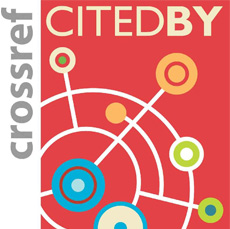ISSN : 2288-5412(Online)
DOI : http://dx.doi.org/10.14354/yjk.2004.22.121
Robert Browning's Dramatic Monologue and W. B. Yeats's Mask Theory
Abstract
In his “dramatic monologue,” a character instead of the poet utters the speechthat makes up the whole of the poem, in a specific situation at a critical moment.This person addresses and interacts with other people and we know of his presence,as well as what they say and do, only from the clues in the discourse of the singlespeaker. In his “My Last Duchess” the Duke is negotiating with an emissary for asecond marriage, and the reader can know the speaker's cruel character andintentions. In his “Andrea Del Sarto,” though Andrea was one of the greatestpainters in the Renaissance period, he was a failure as an artist because of hisartistic passion and indomitable spirit. Excusing his artistic frustration, he once moretries to believe his wife's lies.
When Yeats entered art school in Dublin in 1884, he was an enthusiastic readerof English poetry, especially Browning. Yeats was an admiring reader of Browning'spoetry, and Browning was one of the nineteenth-century forefather poets of Yeats.He explored, as Browning did, the themes of creative men divided withinthemselves and struggling to unify their inspirations toward love and intellect,aesthetic contemplation and heroic action.
In this process, Yeats developed the concept of masks from the other self incontrast to the natural self perceiving a man as the conflicting existence between subjectivity and objectivity. In his doctrine of mask, Yeats provided a formalaesthetic for the poet's need to speak dramatically through the masks of otherpersonalities; Browning had long practised dramatic poetry in principle in which hedonned the masks of personalities totally unlike his own. Browning tended to hidehis interests behind the masks of his characters, whereas Yeats more openly voiceda variety of mystical and antithetical thoughts.
Yeats happened to find an occasional, almost incidental similarity of languageand a shared attitude toward the sources of poetic inspiration with Browning's. By1929, when he was sixty-four years old, rewriting and revising his poetry with aneye to a collected edition, he announced that he would be turned from Browning.Yeats was an appreciative reader of the older poet, but the great achievement ofYeats's poetry transformed and transcended the influence of Browning.
Robert Browning의 극적 독백과 W. B. Yeats의 마스크 이론
초록
-
-
Submission : JAMS
https://yjk.jams.or.kr/
-
YSK
The Yeats Society of Korea
-
Editorial Office
Contact Information- Tel: +82-2-2220-4477
- E-mail: ilhwan_y@hanyang.ac.kr -

-

-

-

-

-





